Intellectual Outputs
what is an intellectual output ?
An Intellectual Output is an activity that results in tangible and meaningful outcomes such as publications and course materials
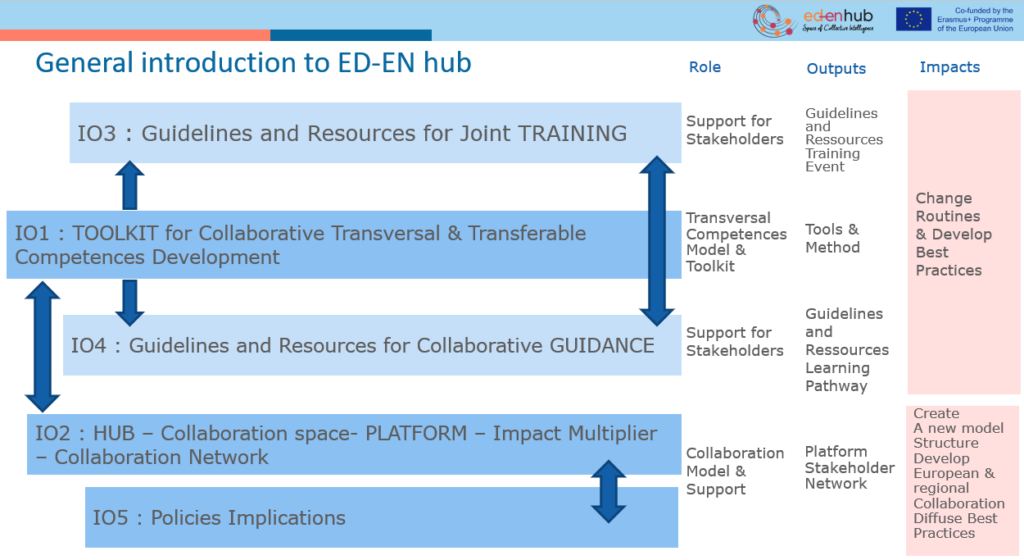
INTELLECTUAL OUTPUT 1
A Toolkit for the joint development of transversal and transferable competences
The toolkit will focus on transversal competencies identified as important for the renewal of education provision in line with emerging requirements of the labour market and in line with those “transformation competencies” that are increasingly recognised as key for individual development, professional growth and civic engagement.
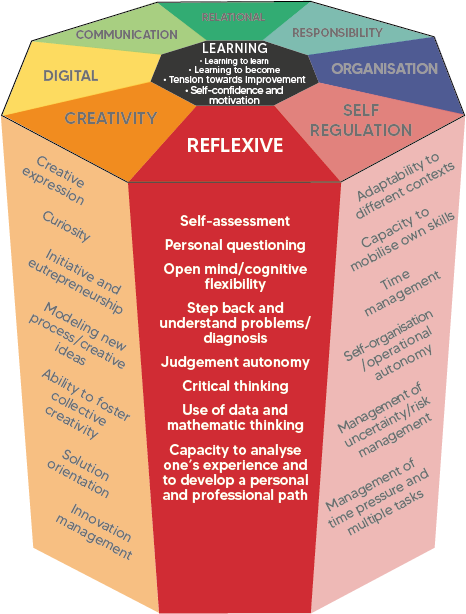
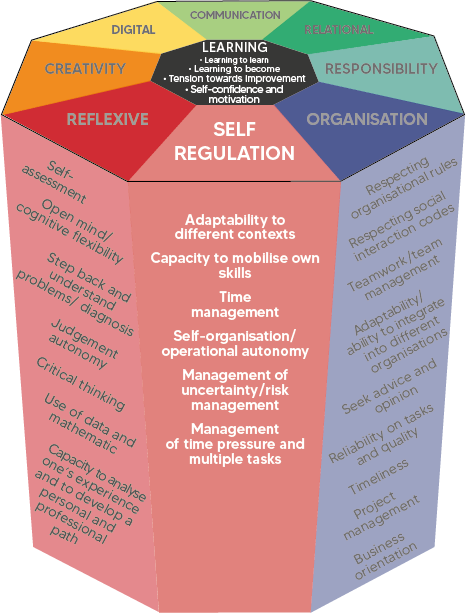
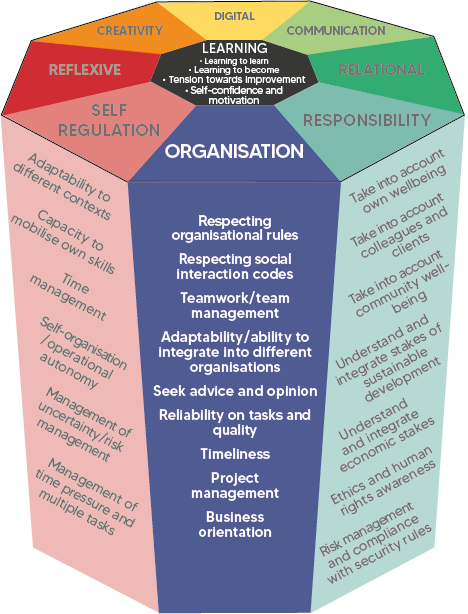
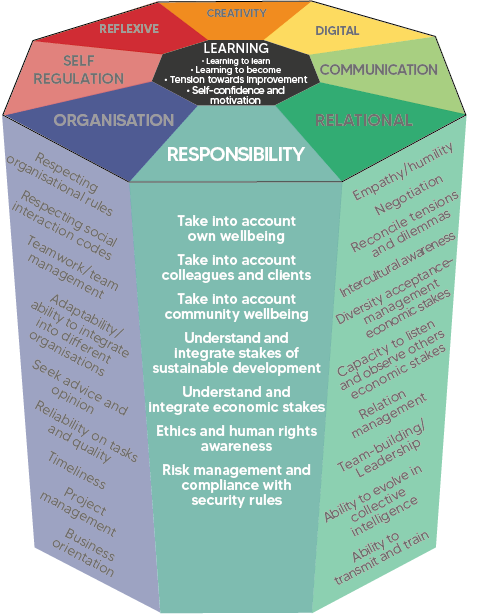
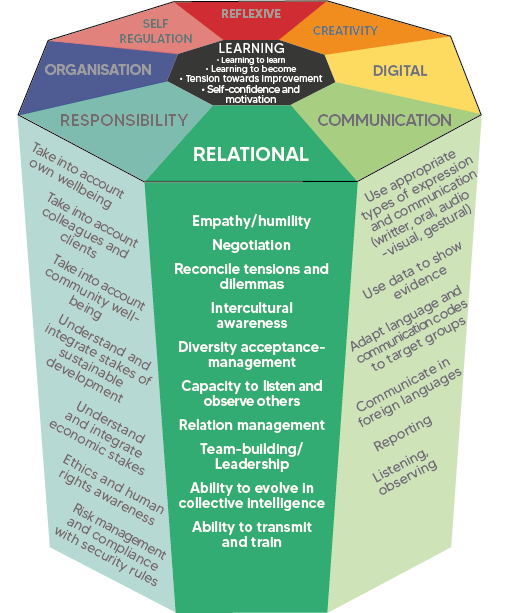
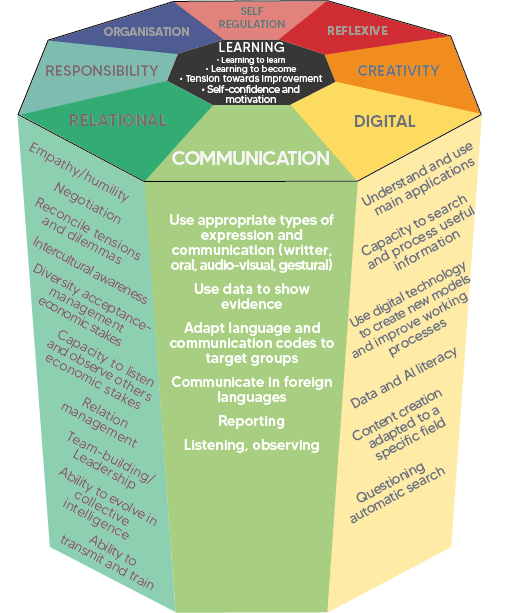
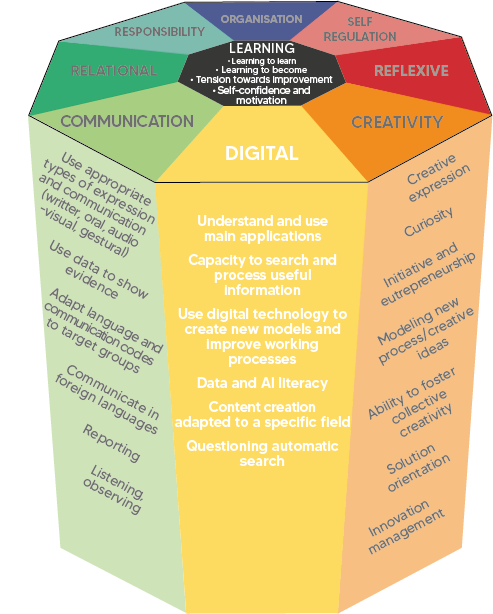
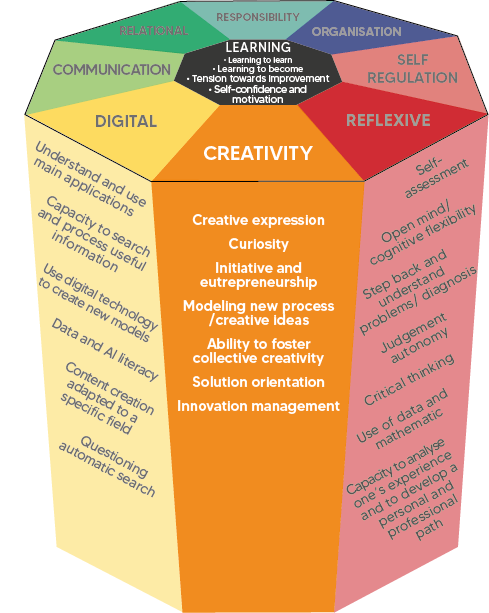
INTELLECTUAL OUTPUT 2
A European platform and model for ED-EN HUB structures, to be proposed to other EU regions, as an impact multiplier of the project
IO2 is focused on the design and development of a digital platform for using in the ED-EN HUB ecosystem, to be then proposed to other EU regions (as an impact multiplier of the project).
This is the task where the technological platform uses new, fast, and frequently changing digital technologies including services and user interfaces to streamline the hub operation processes and create value to the community. The platform also by developing the networked learning community can facilitate the collaboration, interactions, and transactions between its stakeholders.
In practical terms, the output will consist of a collaboration platform and a supporting technology platform through which the model for the participatory development of collaboration infrastructures (the ED-EN HUB) will be made available to newcomer regions beyond the project partnership, thus multiplying the project impact. The developed platform will be finally validated and tested
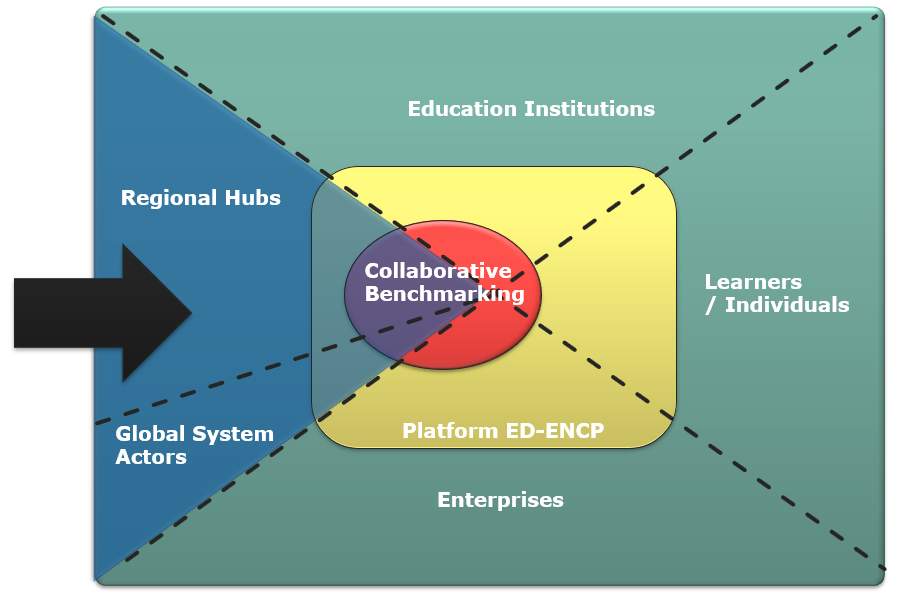
Creation of a common language
INTELLECTUAL OUTPUT 3
Guidelines and learning resources for Joint Training the Trainers, including instruments for joint design of collaboration activities between education and Industry
ED-EN HUB is proposing an integrated pathway addressing the EDucation-ENterprise relationsions in order to ease and enhance the personal professional pathway.
In this perspective, all individuals can define his or her needs of competence development (defined in O1) through active guidance elements (provided within O4). Then, the project will propose tools to professionals to accompany them in a process of co-design of learning elements (O3). The co-design phase is at the core of the ED-EN HUB project as it allows people from both sides (education and companies) to work together, bridging the gap that may exist in their mutual representation.
The third Intellectual output of ED-EN HUB provides training and learning experiences with guidelines to implement them at a local level. The project proposes an accompaniment process for those interested in this perspective, and partners will test the process during learning mobility in Fall 2022.
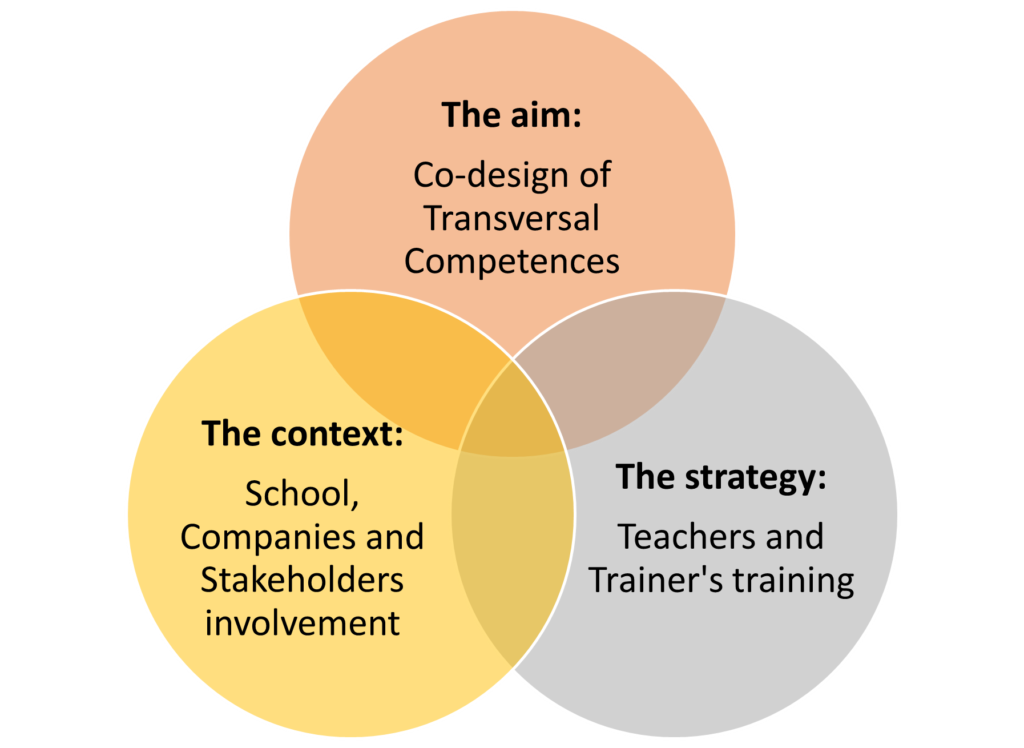
Primary focus: intersection of the three areas - Aim | Context | Strategy
INTELLECTUAL OUTPUT 4
Guidelines for cooperative guidance and support to individual learners searching qualification and employment perspectives, following the principle of Learner’s agency (autonomy and intentionality)
The IO4 is developing Guidelines for cooperative guidance and support to individual learners searching qualification and employment perspectives. Our work aims to rethink guidance as a complete pathway that each individual can join at any time in their life, according to their needs. This pathway is also conceived from the point of view of increased collaboration between schools and companies, as they are key players in guidance.
Therefore, taking into account the needs of the individuals, our productions will help guidance responsibles (councellors, teachers, companies,…) to join into a common vision of guidance, and to use the proper resource to help the individuals to choose and then get the training they need, according to their project (IO3).
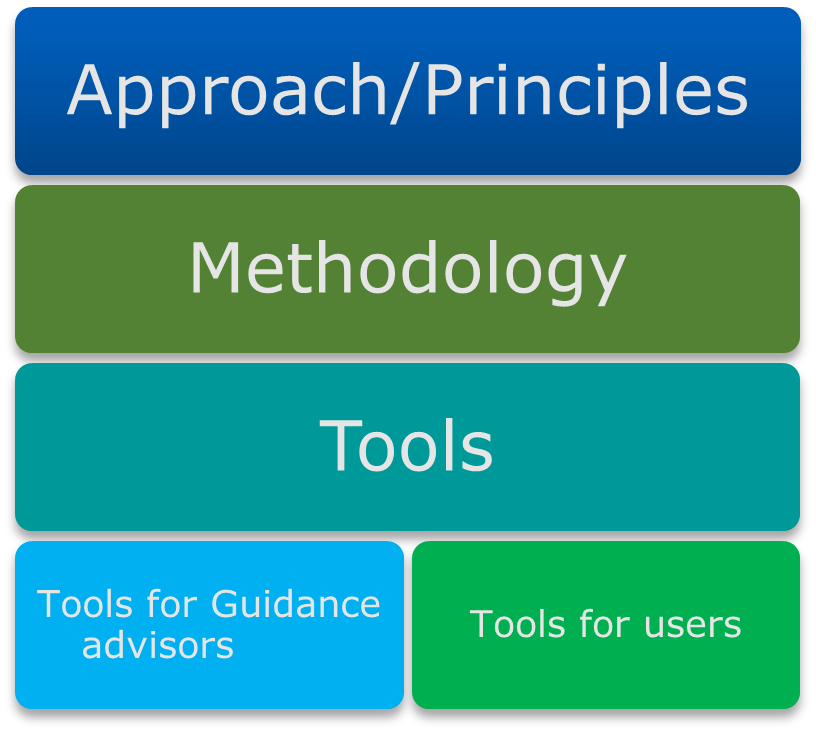
Approach/principles : Tools and methodologies that allow the guidance advisors to appropriate professional practices that are consistent with ethical/deontological principles and with the work objectives set.
Methodology: Professional practices and procedures.
Tools: Devices, instruments, activities that are consistent with a methodology for positive orientation.




